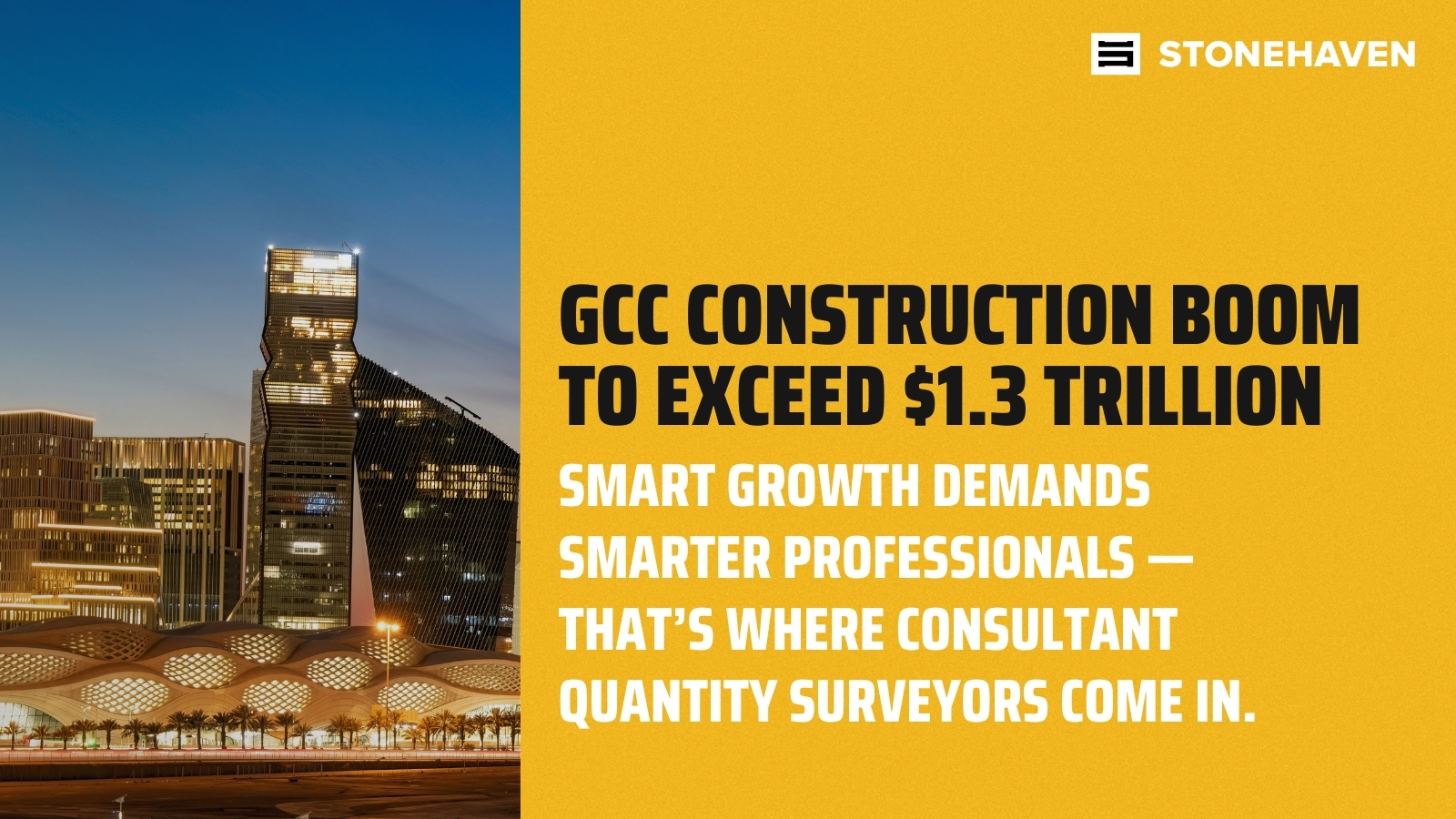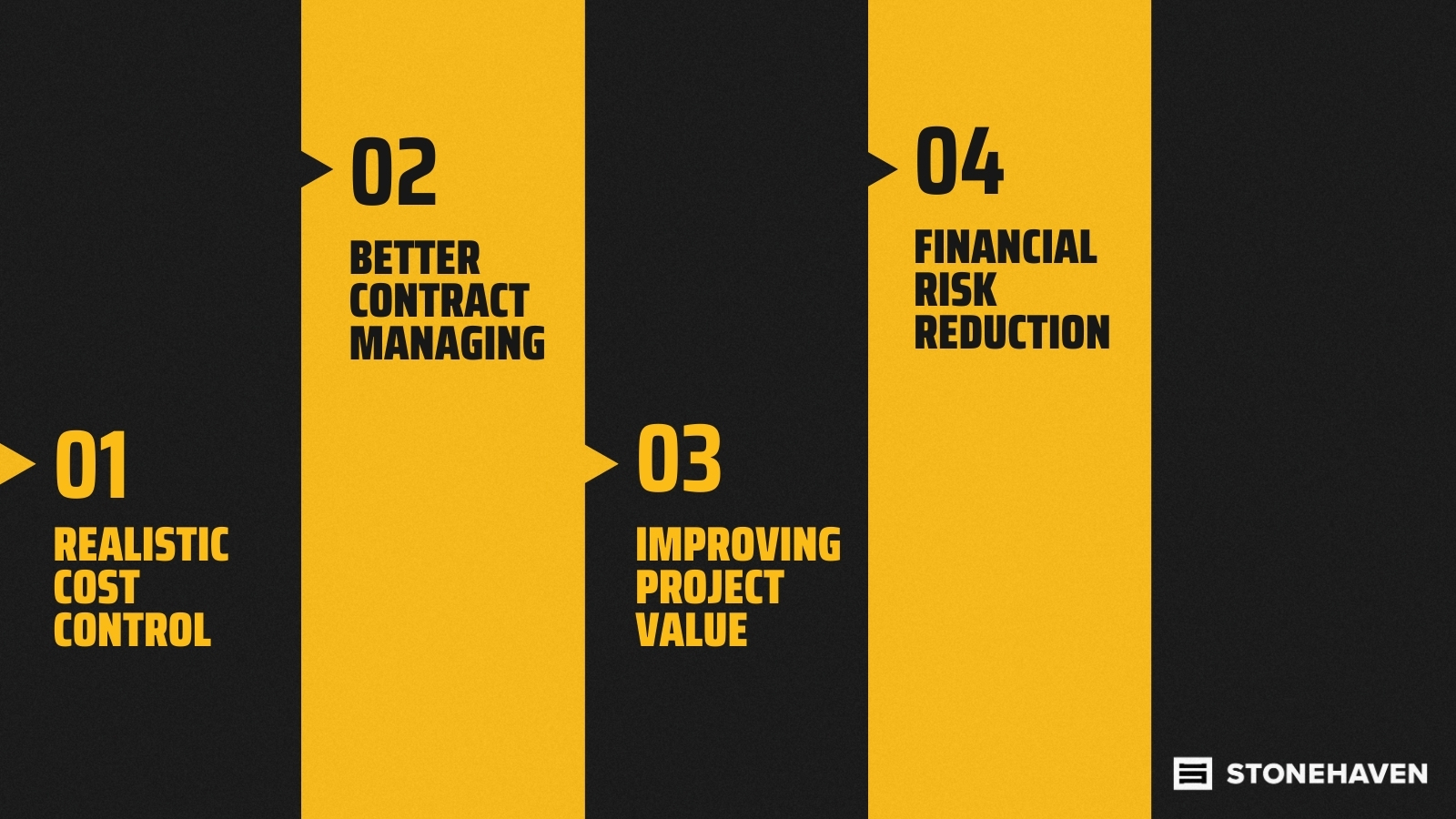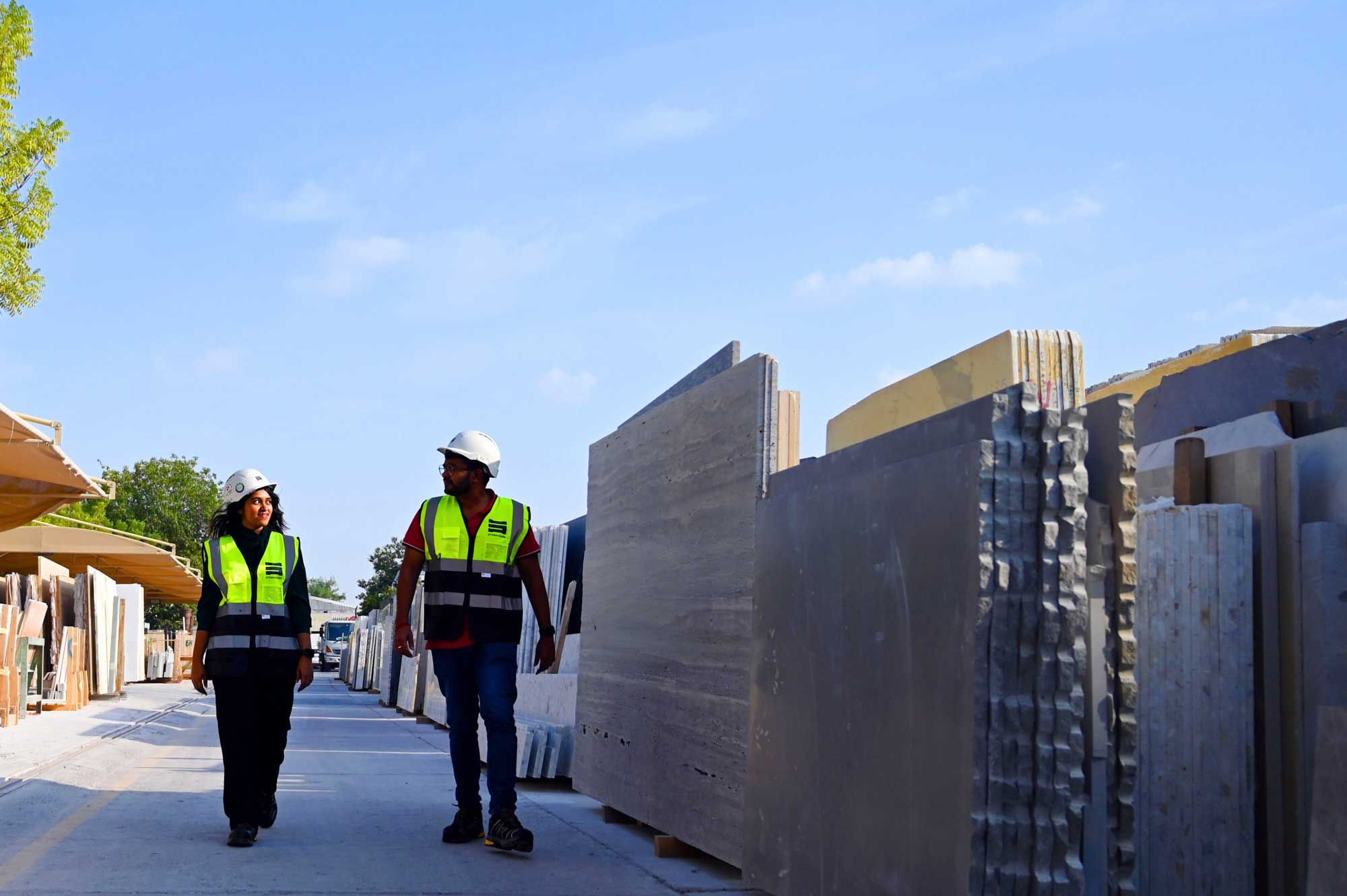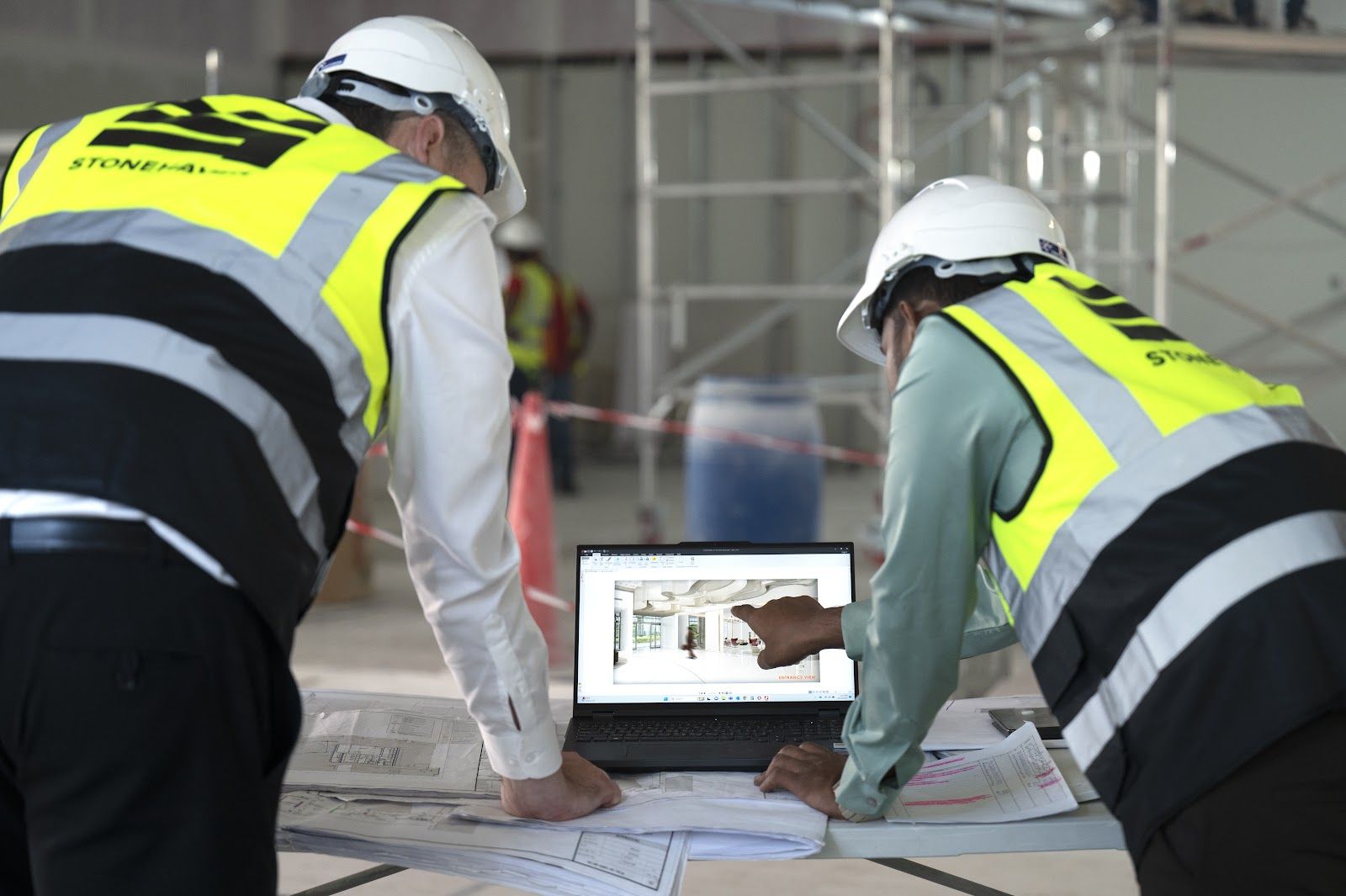Behind every skyline-defining project in the Gulf Cooperation Council (GCC) region lies a silent architect of financial precision: the Quantity Surveyor (QS). As the region accelerates through rapid urbanisation, mega-infrastructure, and high-stakes competition, cost control has become more than a necessity. It has become a strategic advantage. Enter the QS, the financial strategist of the construction world who ensures that projects stay on budget, on schedule, and on point without sacrificing quality.
The GCC's construction landscape is characterised by its scale and complexity. Projects such as the Red Sea International Airport Private Jet Terminal in Saudi Arabia and the Al Ula Tram Project showcase the region's commitment to futuristic urban planning. However, projects come along with substantial financial risks. Fluctuating material costs, labor shortages, and unforeseen project changes can quickly escalate expenses. A QS plays a pivotal role in navigating these challenges, offering insights that lead to informed decision-making and financial prudence.
Moreover, as sustainability and technological integration become integral to construction, the QS's role evolves. They're not just cost managers but also advisors on value engineering, sustainable practices, and digital tools like Building Information Modeling (BIM). In essence, a QS ensures that every dirham spent contributes to the project's success, making them indispensable in the GCC's construction sector.
Who is a Consultant Quantity Surveyor?
A Consultant Quantity Surveyor (QS) is a highly specialised professional within the construction industry, responsible for managing the financial and contractual aspects of a project from inception to completion. Their core role is to ensure that developments are delivered within agreed budgets while maintaining quality, safety, and compliance. By providing detailed cost planning, tender analysis, value engineering, and financial reporting, QSs safeguard a project’s financial health and protect the client’s investment.
In the context of the Gulf Cooperation Council (GCC), the importance of QSs has never been more pronounced. The region is witnessing an unprecedented construction boom, with total output expected to surpass $1.3 trillion by 2025. Ambitious developments such as Saudi Arabia’s Red Sea, Dubai’s smart city expansions, and infrastructure upgrades in Qatar are reshaping skylines and economies. However, these high-value projects are being executed amidst rising inflation, global supply chain disruptions, and increasing demand for skilled labour, all of which introduce significant cost uncertainty. In this climate, the role of the QS is critical in providing financial clarity and ensuring projects remain viable.
Beyond simply managing costs, modern Quantity Surveyors act as strategic advisors. Their expertise in procurement, risk mitigation, and contract negotiation allows them to foresee challenges before they escalate. By collaborating with architects, engineers, contractors, and clients, QSs ensure that financial objectives align with design aspirations and construction realities. In a region where efficiency, speed, and scale are key to competitive advantage, QSs are essential to delivering projects that are not only iconic, but also economically and operationally sound.

The QS's role encompasses various stages of a construction project:
● Pre-Construction: They prepare detailed cost estimates, conduct feasibility studies, and advise on procurement strategies.
● Construction Phase: QSs monitor ongoing costs, manage contracts, and handle variations or changes in the project scope.
● Post-Construction: They oversee final account settlements, ensuring all financial aspects are concluded satisfactorily.
In the GCC, where projects often involve international stakeholders and complex financing structures, the QS's role is even more crucial. They bridge the gap between the client's vision and the project's financial realities, ensuring transparency and fiscal responsibility throughout the construction process.
What Makes Consultant Quantity Surveyors Essential to GCC Construction in 2025?
The GCC's construction sector is renowned for its ambitious projects and rapid development. In such an environment, Quantity Surveyors (QSs) serve as strategic partners, ensuring that the financial aspects of projects align with their overarching goals.
1. Navigating Complex Procurement Landscapes
Procurement in the GCC involves multiple stakeholders, international contractors, and diverse regulatory frameworks, making it intricate. QSs provide clarity by advising on suitable procurement methods tailored to project specifics, preparing comprehensive tender documents, and evaluating bids to ensure value for money.
2. Embracing Technological Advancements
The GCC is at the forefront of integrating technology into construction. QSs leverage tools like Building Information Modeling (BIM) to enhance accuracy in cost estimation, facilitate real-time cost tracking, and identify potential cost-saving opportunities through simulations.
3. Ensuring Compliance and Risk Management
Given the region's diverse legal and regulatory environment, QSs play a pivotal role in ensuring contracts adhere to local laws, identifying potential financial risks early, and implementing strategies to mitigate unforeseen expenses.
How Do Consultant Quantity Surveyors Deliver Real Value to GCC Projects?
Incorporating a Quantity Surveyor (QS) into construction projects in the GCC delivers a wide range of advantages that go beyond basic cost control. Their strategic involvement ensures financial stability, contractual clarity, and long-term value across the entire project lifecycle.

1. Realistic Cost Control
QSs provide detailed and realistic cost estimates at the outset of a project. Their ongoing oversight ensures that:
● Cost overruns are prevented through constant monitoring.
● Budgets are adjusted proactively in response to project changes.
● Funds are allocated efficiently and transparently.
2. Better Contract Management
With deep expertise in tender and contract administration, QSs contribute to:
● Drafting clear and comprehensive contracts.
● Managing contractual obligations and handling scope variations.
● Resolving disputes efficiently to keep timelines and partnerships intact.
3. Improving Project Value
QSs assess each aspect of a project to uncover cost-effective alternatives that maintain quality. This includes:
● Evaluating different materials, methods, or technologies.
● Streamlining the use of resources to avoid waste.
● Maximising the return on investment by enhancing overall project value.
4. Financial Risk Reduction
Through early identification of financial risks, QSs help project teams to:
● Avoid unforeseen expenses that could derail progress.
● Maintain continuity in delivery, even under pressure.
● Strengthen stakeholder trust through transparent reporting and foresight.
Engaging a QS is not just a cost but an investment, ensuring that construction projects in the GCC are executed efficiently, economically, and successfully.
What Are the Biggest Cost Challenges in GCC Construction, and How Can a QS Solve Them?

Despite their indispensable role in driving cost efficiency and project value, Quantity Surveyors (QSs) in the GCC face a range of challenges shaped by the region’s fast-paced, high-stakes construction landscape. From material price shocks to shifting regulations, these challenges can significantly impact project budgets and timelines if not managed with foresight and precision. Here’s a closer look at some of the most pressing cost-related obstacles, and how skilled QSs are uniquely positioned to navigate them.
1. Fluctuating Material Costs
In the GCC, construction is deeply tied to global supply chains. Whether it's steel, cement, or imported fixtures, prices for essential materials are often subject to global economic forces, geopolitical instability, and shipping disruptions. The post-pandemic economy, ongoing conflicts, and climate-related supply chain delays have made material costs more unpredictable than ever.
QS Solution: Quantity Surveyors mitigate the risk of price shocks by incorporating flexible budgeting mechanisms and maintaining real-time cost databases. They advise on procurement strategies that lock in prices early, establish contingency allowances, and explore locally available alternatives without compromising on quality. Their ability to model different scenarios allows clients to anticipate potential cost escalations and plan accordingly, ensuring project feasibility even in volatile markets.
2. Labour Shortages and Rising Wages
The construction workforce in the GCC heavily depends on migrant labour. However, changes in visa policies, increasing competition across sectors, and evolving labour laws have resulted in workforce shortages and wage inflation. These issues can delay project delivery and inflate labour costs unexpectedly.
QS Solution: A proactive QS identifies potential labour risks early in the planning phase. They build flexibility into project schedules and cost forecasts by anticipating delays and increased costs. By coordinating closely with project managers and HR teams, QSs help explore alternative labour sourcing strategies or adjust timelines to accommodate workforce constraints. In some cases, they also advocate for investment in automation or prefabricated solutions that reduce labour dependency.
3. Changing Regulatory Environments
In a region known for rapid development, regulations can evolve quickly. Building codes, sustainability requirements (like Estidama or LEED), and local authority approvals often shift to keep pace with international standards and national goals such as the UAE Vision 2030 or Saudi Arabia’s Vision 2030. These shifts can lead to unexpected compliance costs or redesign requirements mid-project.
QS Solution: Quantity Surveyors remain updated on regulatory developments and proactively factor these into cost estimates and risk assessments. Their understanding of local compliance frameworks ensures that projects avoid costly fines, redesigns, or approval delays. QSs often work hand-in-hand with legal and planning teams to prepare for policy shifts, enabling a smoother, more compliant construction process.
4. Challenges of Technological Integration
The GCC is pushing for smart cities, digital twins, and fully integrated Building Information Modelling (BIM) systems—but implementing these technologies can be daunting for traditional construction firms. The upfront investment, training requirements, and interoperability issues can hinder progress and increase project costs.
QS Solution: A forward-thinking QS supports digital transformation by aligning cost management systems with BIM and other project management software. They undergo continuous professional development to stay current with tech trends and collaborate with digital consultants to accurately quantify cost-saving benefits from automation and digital workflows. More importantly, they help stakeholders evaluate the return on investment of such technologies, ensuring decisions are grounded in long-term value rather than short-term expense.
By anticipating these regional cost challenges and implementing robust risk management strategies, Quantity Surveyors in the GCC do more than just manage numbers, they drive smart decisions. Their adaptability, market knowledge, and cross-disciplinary coordination make them critical partners in ensuring construction projects remain profitable, timely, and future-ready.
Whether it's managing uncertainty, leveraging data, or navigating evolving policy landscapes, the modern QS plays a strategic role in shaping the region’s ambitious urban and infrastructure growth.
Conclusion
In the GCC's ambitious construction landscape, the role of the Quantity Surveyor is indispensable. Their expertise ensures that projects are not only completed within budget but also deliver maximum value. From initial cost estimations to final account settlements, QSs navigate the financial intricacies of construction, ensuring transparency, efficiency, and success.
As the region continues to evolve, embracing sustainability and technological advancements, the QS's role will further expand, adapting to new challenges and opportunities. For stakeholders aiming to achieve excellence in construction, engaging a skilled Quantity Surveyor is not just beneficial—it's essential.
Featured Perspective
This article includes contributions and insights from Janadeepan S, Cost Manager at Stonehaven whose project experience in the industry has shaped much of this discussion.
Janadeepan is a highly skilled and experienced Quantity Surveyor with an impressive track record. He is proven skilled in budgeting, risk management, and resource allocation, proficient in utilising project management software to enhance efficiency.
About us
At Stonehaven, we pride ourselves on delivering top-tier Quantity Surveying services tailored to the unique needs of the GCC construction sector. Our team of seasoned professionals brings a wealth of experience, ensuring that every project we undertake is managed with precision, transparency, and a commitment to excellence.
Our services include cost estimation and planning, where we provide accurate and detailed forecasts to guide project budgets from inception to completion. In contract management, we ensure that all contractual obligations are met while effectively resolving any disputes that arise during the project lifecycle.
We also offer value engineering services by identifying strategic opportunities to enhance overall project value without compromising on quality. Through in-depth analysis and creative solutions, we help optimise materials, processes, and systems for maximum efficiency.
In addition, our risk management expertise allows us to proactively address potential financial challenges, helping our clients safeguard both timelines and budgets. We analyse risk factors early and develop mitigation strategies that support continuity and stakeholder confidence.
With a deep understanding of the GCC's complex and evolving construction landscape, we are equipped to handle projects of all scales and complexities. Our commitment to integrating the latest technologies, including Building Information Modeling (BIM), ensures that clients benefit from forward-thinking, data-driven solutions that boost both efficiency and cost-effectiveness.
















